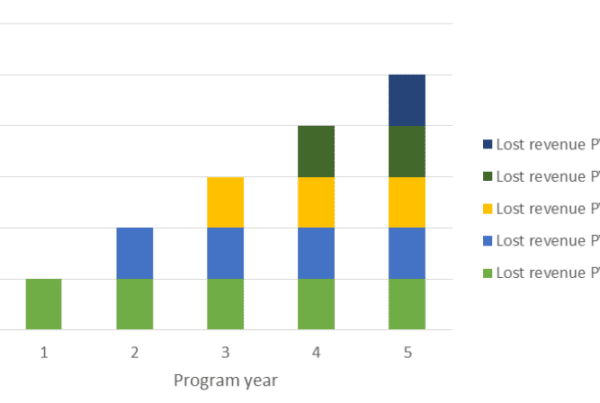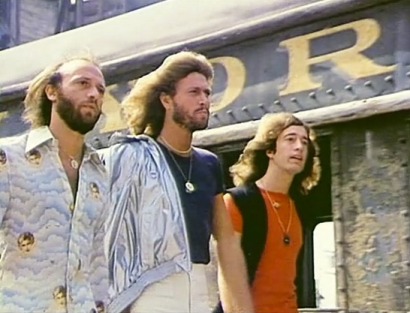Many states have opt-out provisions for major consumers of energy so these consumers do not have to pay into EE programs. The reasoning typically goes something like this:
- They are major users of energy so they naturally are going to cut energy cost to increase profit; they can take care of themselves
- They shouldn’t have to provide outside subsidies to these programs
- They don’t participate in the programs so why should they have to pay in
The facts are these concessions are required to get EE laws (bills) through legislatures and/or governors.
Consider that typical opt-out regulations require that these end users must develop, implement, and in some typically very lame fashion report their results.
Let’s use Minnesota as an example. Minnesota has a pretty high bar for customers to be eligible to opt out with a minimum of 20 MW, or 20,000 kW in demand. According to my calculations, such a customer might have an annual electric bill of something close to $10 million. If the EE rider (charge) is 1.5%, this means they would pay $150,000 into the program.
To avoid paying this $150k, the end user must write its own energy efficiency program, document activity and verify savings. Is that going to happen? Maybe, but not very well. I don’t know about Minnesota but we have reviewed opt-out customer plans for program evaluations in other states and they go something like this:
“We’re going to save energy.” The end.
The opt out provisions in some states have no teeth. As evaluators, we are left to evaluate plans like that provided above but we are not allowed to ask questions and we are no allowed to go on site to see what they are doing. So our customer-specific evaluation report looks like this:
“Based on the [lack of] information provided, we find no reason to make adjustments to savings.” What else can you do? I’d like to say, I don’t think these guys intend to do squat but, wouldn’t be prudent.
Energy efficiency programs are weird things, partly I guess because utilities are fully regulated monopolies in most places. Theoretically, programs benefit all customers because EE as a resource is less expensive than power plants, more wires, and more fuel consumption. If some customers want to waste energy like crazy, the effects aren’t just enjoyed by those end users. This drives up prices for everyone served by the same monopoly. Similarly, peoples’ right to choose a gas guzzler doesn’t just affect their fuel costs. Their participation in driving up demand puts upward pressure on fuel prices for everyone.
So IF these companies that opt out are not doing anything to reduce consumption or demand, they are having an adverse impact on the rest of us. To claim they don’t want to subsidize EE programs for others is like saying; “We should only have to pay taxes for the road from my factory to the interstate. We don’t need no other stinking roads.”
The major challenge with residential and small business programs is they are difficult/impossible to deliver cost effectively. Many, if not most do not pass the myriad of tests, including the Total Resource Cost, or TRC test. On the other hand, portfolios, all programs always pass the TRC or why have them. Obviously, from a program perspective, large commercial and industrial programs are cost effective. Why? Economies of scale. Program administration costs and other overhead are relatively puny because large C&I projects are relatively – you guessed it – large!
Does anyone, home-owner, school, hospital, major corporation shoot for 1.5% energy savings? I don’t think so. I’ve never seen this. Why bother with something so dinky? You can’t even measure it. Theoretically, since programs have this sort of goal for all end users combined, huge opt-out customers only have to meet the same goal. Why go through all the reporting and overhead hassle to save a paltry 1.5%? Nobody is going to do that. So if opt-out customers really are going to have an energy-saving plan, it’s going to be for something substantial, probably averaging in the 10% range, which is what we typically see for huge industrial end-users. If you are going to save that kind of energy, why not be in the program and take the incentive limit of half or three quarters of a million dollars (typical) nearly every year? Believe me when I tell you some end users do this and they are loving it.
So add it all up:
- To save a relatively tiny share of consumption, opt out customers theoretically inflict a bunch of red tape on themselves.
- If they really are doing energy-saving projects or plan to, they are passing up a bunch of free money from other customers, including probably from their competitors!
- Why shouldn’t their projects be subject to evaluation like all other programs? This is a bit like the cops being on the mob’s dole.
I would say end users that opt out are either not very smart business people because they can easily suck more money out of the system than they pay in, or they don’t want to pay in and they have no intent to reduce consumption and demand. What else is there? There are no cost effective measures left? Uh huh. And my dog is the reincarnation of Winston Churchill.
Tidbits
Last week the unthinkable happened in Gomorrah, er I meant Washington DC. (No, it wasn’t about the narcissistic congressman from Queens.) The US senate in an unbelievable act of “bipartisanship” voted to end the $6 billion ethanol tax subsidy. See Galactically Stupid. However, apparently it is not expected to pass the house because of garbage attached to the bill and because tax policy is to begin with the house and the president opposes dumping the subsidy. Some repubs are against any tax “increases”. Does this mean tax cheats that haven’t filed for several years should just keep cheating too? Too bad I’ve been paying taxes. I would really appreciate the tax omission grandfather act (TOGA, TOGA, TOGA!).
How bizarre is this? The president and house are “united” against the bill and the senate dems are carrying the thing to a 3:1 win, with considerable repub support. This is truly bizarre but nevertheless, some amazing progress.





